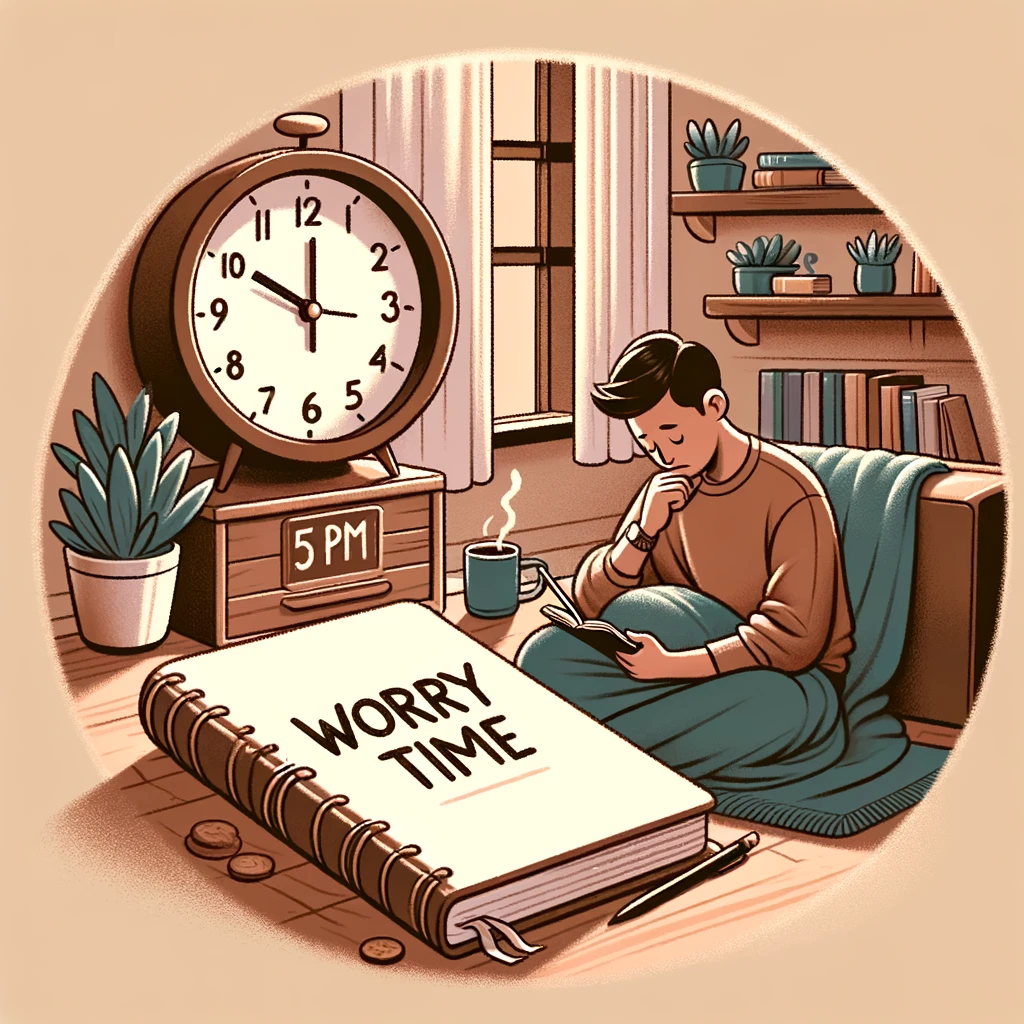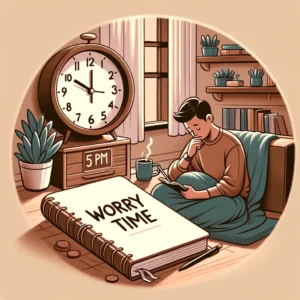
ADHD and Worry:Five Ways to Worry Less and Enjoy Life more
Table of Contents
ToggleADHD and WORRY: 5 Tips for ADHD Women: A Neurodivergent Affirming Guide

Anyone who's ever felt the knot of worry tighten in their stomach knows that worry can be a destructive force. For women with ADHD, the challenge is magnified, as the brain's wiring can lead to a heightened focus on potential problems, often resulting in paralysis by analysis. However, understanding and embracing our neurodiversity can empower us to manage worry more effectively. Here are five neurodivergent affirming tips to help you navigate adhd and worry.

1. Embrace What You Can Control:
Don't try to control everything—recognize that some events are outside your control. Focus instead on what you can influence. For example, while global events are beyond our reach, we can control our responses and actions toward our immediate environment. This shift in focus liberates us from the weight of unnecessary worry. How to Do It: Create two lists: one for things you can control and another for what you can't. Use this as a visual reminder to focus your energy constructively.2. Recognize the Signals:
Recognize when you're worrying and pay attention to your body's cues. Anxiety can manifest physically through symptoms like racing thoughts or tension. Acknowledging these signs, you can take proactive steps to calm your mind and body, such as deep breathing or progressive muscle relaxation. How to Do It: Maintain a "worry trigger" journal and document what initiates your worry. This will help you identify patterns and triggers.3. Problem-Solving Over Worrying:
Interrupt the useless cycle of worry by problem-solving. Instead of letting worry consume you, ask yourself actionable questions like, "What is my mind telling me to be worried about?" and "What can I do to influence the outcome?" This approach transforms worry into actionable steps, thus reducing stress and promoting productivity. How to Do It: Use a problem-solving sheet to jot down the issue, possible solutions, and actionable steps. This methodical approach can help clarify solutions and alleviate worry.4. Contain Your Worry:
Isolate worry time to manage constant generalized anxiety. Designating a specific time for worrying allows you to compartmentalize your concerns, preventing them from overshadowing your day. How to Do It: Schedule a daily "worry time," and if worries arise outside this period, remind yourself to address them during your allotted time. This practice can help minimize the intrusive nature of worry.5. Question Your Thoughts
Check what your mind is telling you. Challenge the accuracy of your worries by questioning their validity. Often, our anxieties are based on unfounded or unrealistic assumptions. How to Do It: Engage in thought challenges by questioning the truth and helpfulness of your worries. Asking yourself if there's evidence for your worry or if there are alternative outcomes can help reduce anxiety.
Why ADHD and Worry are intertwined:
- Heightened Sensitivity: ADHD brains often have a heightened sensitivity to external and internal stimuli, making it easier to become overwhelmed and worried by everyday situations.
- Difficulty with Executive Functioning: Challenges with planning, organization, and prioritizing can lead to increased worry about meeting deadlines or managing tasks effectively.
- Hyperfocus on Negatives: The tendency to hyperfocus can sometimes fixate on potential negative outcomes, leading to excessive worry.
- Impulsivity and Anxiety: Impulsivity, a common trait in ADHD, can contribute to anxiety and worry, as actions are taken without fully considering the consequences.
- Varying Emotional Regulation: Difficulty in regulating emotions can amplify feelings of worry and anxiety, making them more intense and harder to manage.

Using the FLOURISH Model to Help with ADHD and Worry:
- Self-Compassion: Be kind to yourself when you're worried. Recognize that everyone worries and that it's okay to feel this way. Remind yourself that you're doing your best.
- Action: Write down three kind statements to comfort yourself whenever worry overwhelms you.
- Self-Care: Regular self-care activities can reduce overall stress and help manage worry. This includes physical activity, adequate sleep, and feeding yourself.
- Action: Schedule daily self-care activities and treat them as non-negotiable appointments with yourself.
- Self-Advocacy: Speaking up for your needs, especially in work or social situations, can alleviate worry about misunderstandings or unmet needs.
- Action: Practice asserting your needs in a small, manageable situation and gradually take on bigger challenges.
- Self-Accommodation: Create a personal environment that reduces worry triggers. This means making things comfortable and easy for yourself so you arent always struggling.
- Action: Identify one change you can make in your environment to reduce worry and implement it.
- Self-Awareness: Understanding your specific worry patterns can help you anticipate and mitigate worry before it escalates.
- Action: Keep a worry journal to track when you worry most and what helps you calm down.
Medical information obtained from this website is not intended as a substitute for professional care. If you suspect you have a problem, you should consult a healthcare provider.






